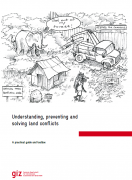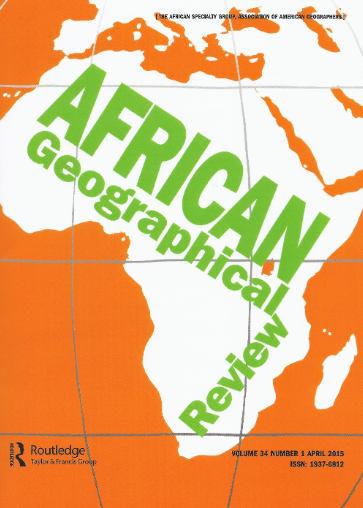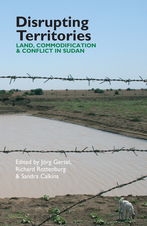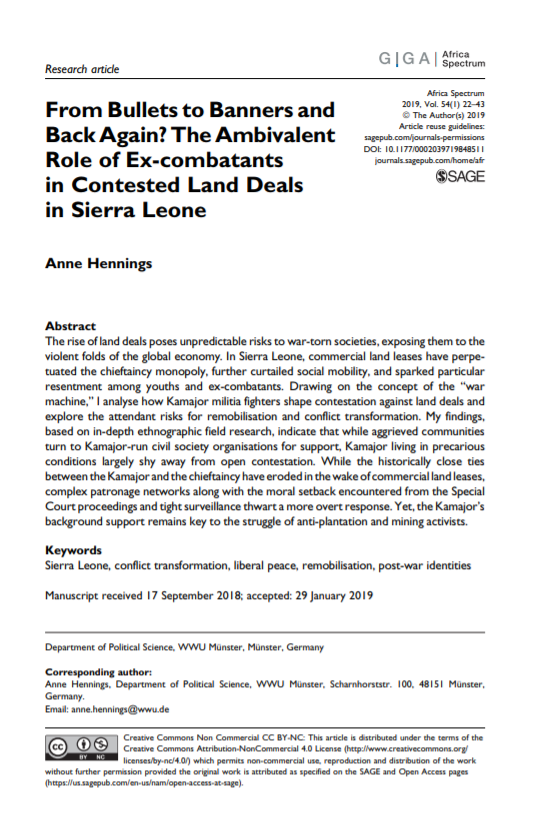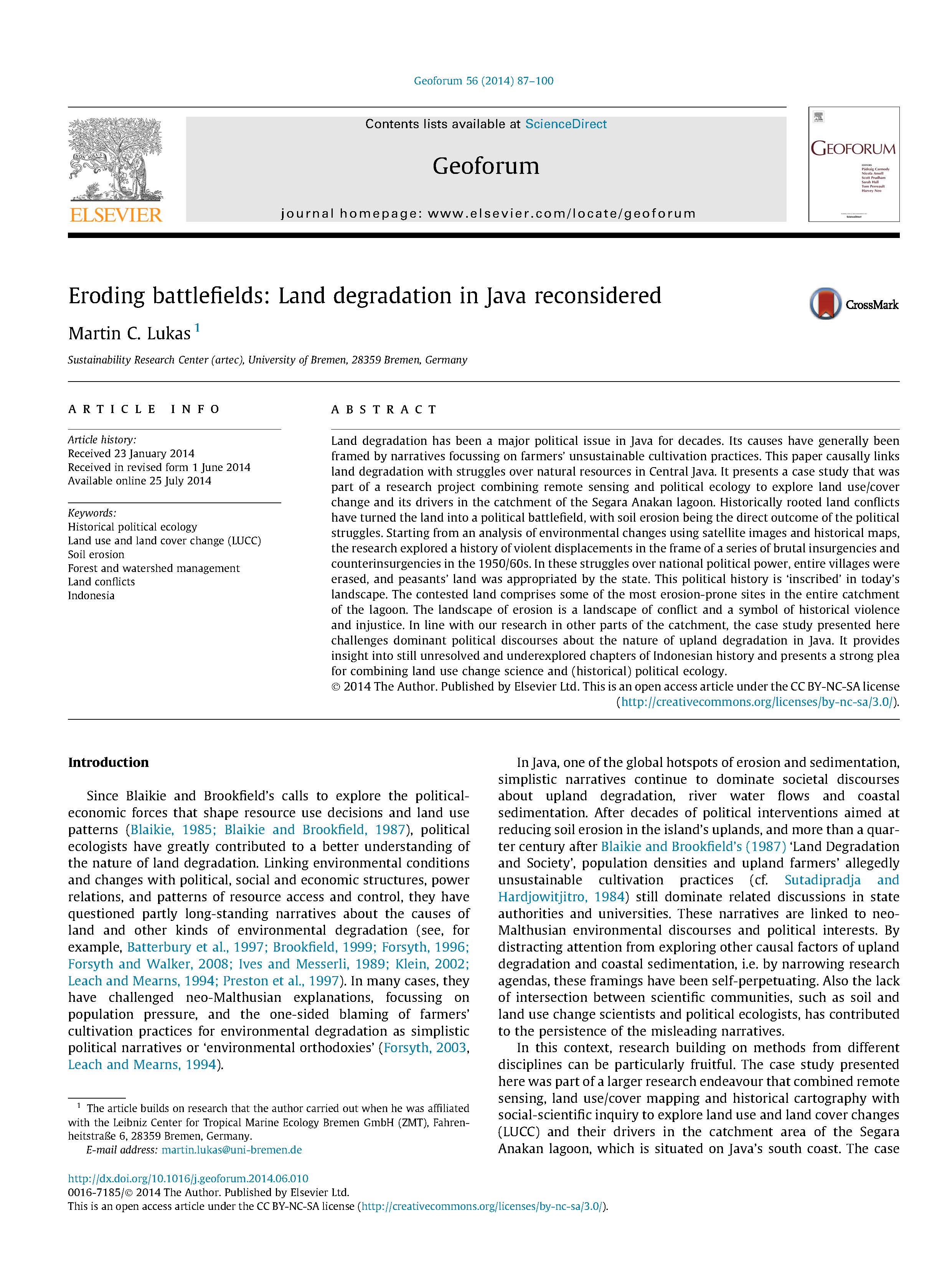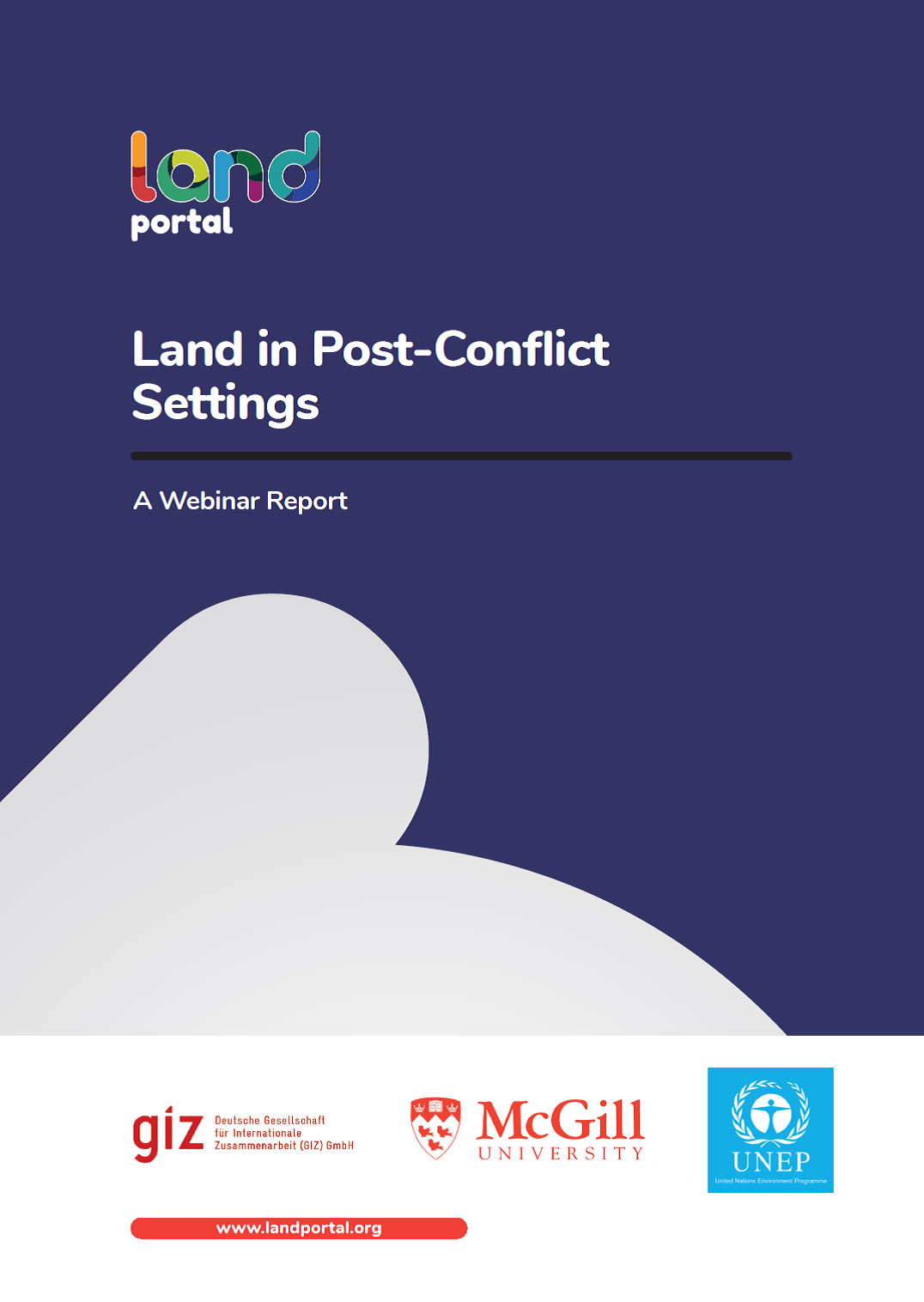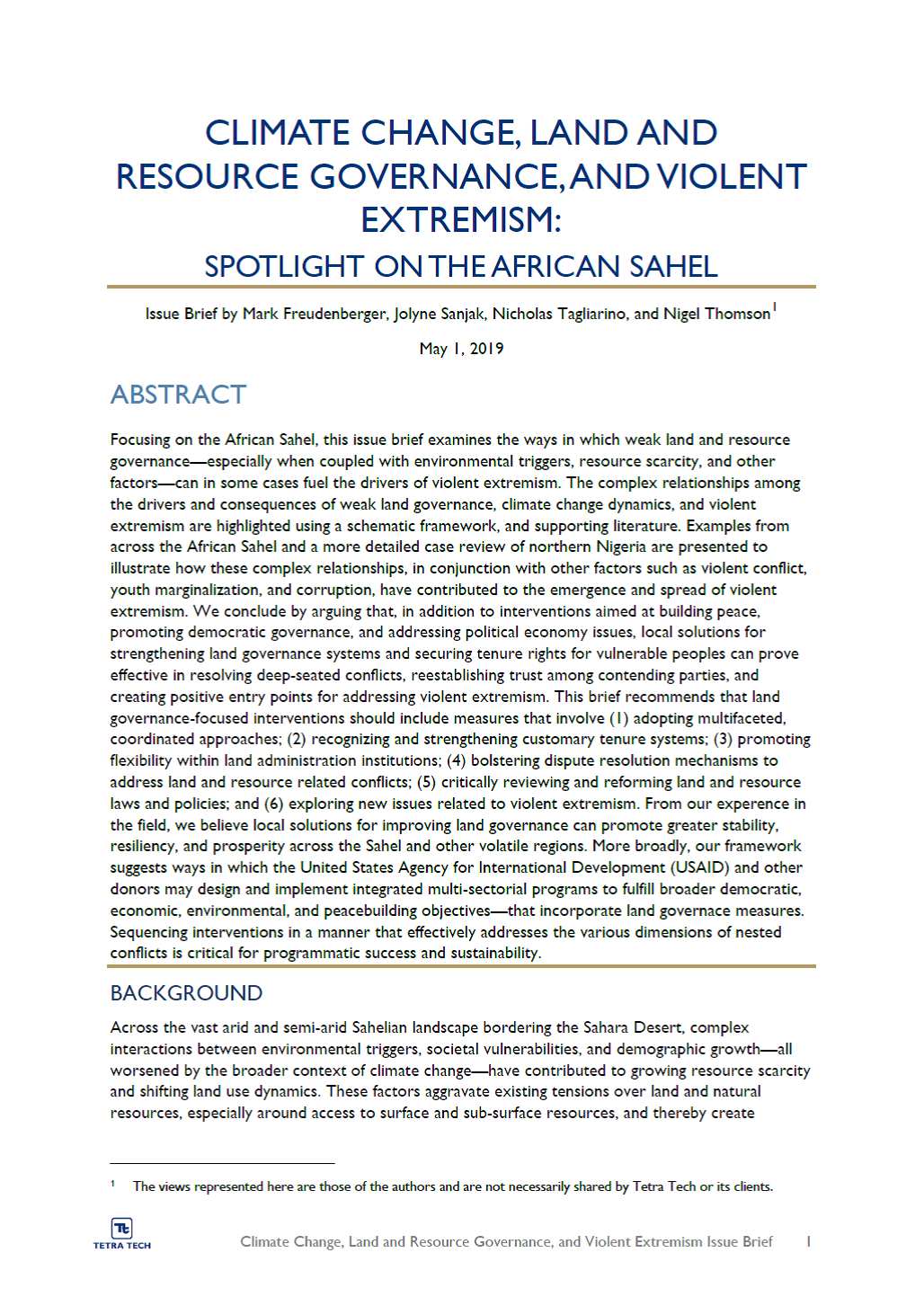LAND AND CONFLICT. Supporting peace-making and peacebuilding efforts in fragile states
Land is a key driver of conflicts and is a bottleneck to recovery. Although increasingly acknowledged as a critical factor in peace-making and peacebuilding, land-related issues are often linked to the development agenda but are not properly addressed in post-conflict and peacebuilding. Neither are they inserted in the conflict cycle analysis. Conflicts are often not linear in character and phases of insecurity and partial stability can alternate.


